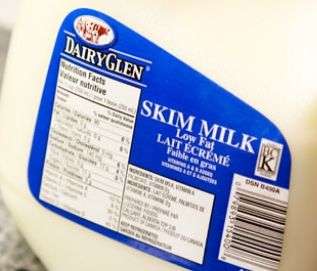Federal appeals court sides with small dairy farm against state regulators
In 2012, the Agriculture Department began enforcing newly adopted regulations requiring skim milk – whole milk with the cream skimmed off – to include artificially injected vitamin A.
The third-generation Calhoun County farm refused to comply. As a result, regulators issued a stop-sale order along with one caveat: the dairy could sell its skim milk if it labeled it “imitation milk.”
Ironically, the state asserted in court that it would be misleading for the dairy to label its skim milk as skim milk since all other dairy producers are required to comply with the vitamin A rule.
On Monday, the U.S. Court of Appeals for the 11th Circuit disagreed.
“It is undoubtedly true that a state can propose a definition for a given term. However, it does not follow that once a state has done so, any use of the term inconsistent with the state’s preferred definition is inherently misleading,” the court said.
Otherwise, the court added, “(a)ll a state would need to do in order to regulate speech would be to redefine the pertinent language in accordance with its regulatory goals.”
In other words, the Agriculture Department can establish a standard definition for commercial products, but it can’t say skim milk isn’t skim milk just because it changed the term to fit its own regulations. “Such reasoning is self-evidently circular,” the court said.
According to court documents, the Ocheesee Creamery sold its skim milk without complaints or confusion for a decade prior to the 2012 regulatory change. “Every day we can’t sell it, it hurts our livelihood and we lose customers,” owner Mary Lou Wesselhoeft says.
Justin Pearson, the dairy’s attorney, said the state’s actions equate to the “suppression of speech.”
“All Mary Lou wants to do is sell skim milk that contains literally one ingredient – pasteurized skim milk – and label it as pasteurized skim milk,” he said.
Pearson is a senior attorney for the Institute for Justice, a public interest law firm that began representing Wesselhoeft without charge in 2014.
The 11th Circuit’s decision vacates a district court ruling that said the department acted within its legislatively delegated authority to regulate commercial speech.
The appeals court, however, determined there were “numerous less burdensome alternatives” than “banning the term skim milk,” such as including an additional disclosure that some Vitamin A is removed by skimming.
In 2013, Wesselhoeft proposed an array of alternative labels, including “Pasteurized Skim Milk: No Vitamin A Added,” “Pasteurized Skim Milk: No Lost Vitamin A Replaced,” and “Pasteurized Skim Milk: Most Vitamin A Removed by Skimming Cream from Milk.”
The Department of Agriculture rejected her suggestions.
Pearson told Watchdog.org in a previous interview that amicus briefs were filed by large farm organizations, including the powerful International Dairy Foods Association, on behalf of the state government’s position.
“It’s clear that giant international dairy farmers don’t like the idea that small, authentic creameries could offer alternative choices. I don’t think that’s a coincidence,” he said.
The dairy’s lawsuit didn’t seek monetary damages, only the ability to call its product skim milk.




